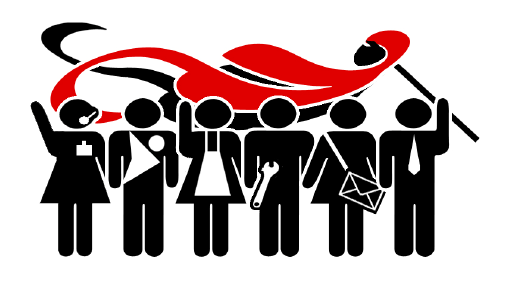RSVP: http://goo.gl/forms/IIFYBHsqK0
A two-day organiser training workshop, presented by two comrades from the anarcho-syndicalist union the FAU (Berlin section).
When: 11am-5pm on Saturday 23 April and Saturday 30 April. Persons wishing to participate need to be available for both dates.
Where: Activity Rooms 1 & 2, Kathleen Syme Library and Community Centre (251 Faraday St, Carlton).
As many bosses increasingly emphasise flexibility, adaptability and competition between workers as the values founding the modern workplace environment, precarity and abuse of power has become rife. As workers, many of us can easily identify the issues big and small within our workplaces which negatively impact on our received wages, the amount of hours we are expected to spend in our workplaces, our health and safety concerns and our right to be treated with dignity, equality and respect whilst at work. If you are experiencing violations within any of these aspects of your work life (or others) they do not have to be tolerated! There are always steps that can be taken for workers to level the playing field once we are armed with the right skills!
Anarchist Affinity is hosting Organiser Training 101 to help you build these skills. Based on Australian, British (Solidarity Federation), and North American (Industrial Workers of the World) experiences, the Organiser Training is an intensive, hands-on, two day workshop where participants learn basic tools needed to successfully organise and operate their workplaces democratically. OT 101 takes participants through the early development of an organising campaign. Over the weekend you will learn what exactly it means to be organised, why we do it, and techniques to carry out your own campaign.
FAU Berlin Foreigner’s Section comrades Madelaine and Carmen will take you through role plays, group facilitated discussion, and interactive lectures.
Topics include: gathering contact information, approaching co-workers, and building an organising committee relevant to workers who participate in workplace organising.
The training is for free and open to everyone who wishes to participate. We warmly encourage people to attend who have had no prior union experience or organising/activist experience. You don’t have to be working in an industry that is traditionally union-based, as long you have co-workers (in whatever capacity) we can devise a strategy to get you started! In fact if you know other colleagues in your workplace who want to see some change, bring them too. We especially encourage attendance from workers who experience disproportionate exploitation, including people of colour, first nation people, women, LGBTI workers and workers with disability.
Basic snacks and refreshments will be provided on both days, there are a variety of places to get lunch near the training venue.
If you are going to attend please send an RSVP to the Anarchist Affinity before 9 APRIL with the following information:
Name:
Phone #:
Occupation (Industry):
Other notes (i.e. dietary requirements):
But seriously, RSVP because knowing who’s coming helps us plan.


